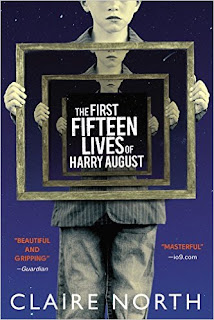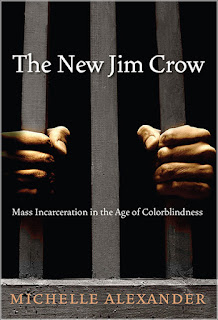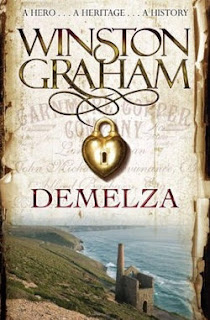
The First Fifteen Lives of Harry August by Claire North (2014)
Perhaps my favorite sci-fi book of all time. It’s about a man who gets to relive his life over and over and retain the memories of each of his prior lives. Tense, engaging, fun, with the occasional profound insight and quotable moment.
“The secret to being unafraid of the darkness is to challenge the darkness to fear you, to raise your eyes sharp to those few souls who stagger by, daring them to believe that you are not, in fact, more frightening than they are.”

But What If We’re Wrong?: Thinking about the Present as if It Were the Past by Chuck Klosterman (2016)
Chuck Klosterman is our best writer on contemporary culture. The premise of the book is to think about today's culture — our TV shows, music, and movies — from someone's point of view hundreds of years in the future. Who will be the one rock band future students study? What '90s TV sitcom will have best represented ordinary American culture? And plenty of stuff on science and politics, too. It’s just such a pleasure listening to Klosterman think, following him in whatever direction his seemingly-boundless curiosity takes him.
“The ultimate failure of the United States will probably not derive from the problems we see or the conflicts we wage. It will more likely derive from our uncompromising belief in the things we consider unimpeachable and idealized and beautiful. Because every strength is a weakness, if given enough time.”
 The New Jim Crow: Mass Incarceration in the Age of Colorblindness by Michelle Alexander (2012)
The New Jim Crow: Mass Incarceration in the Age of Colorblindness by Michelle Alexander (2012) This book tells a very research- and statistic-based story about black men afflicted by structural racism. I will never look at policies like “Stop and Frisk” and the “Drug War” the same way. The book can be a bit redundant at times, but it should be assigned skimming for every American.
“The deeply flawed nature of colorblindness, as a governing principle, is evidenced by the fact that the public consensus supporting mass incarceration is officially colorblind. It purports to see black and brown men not as black and brown, but simply as men — raceless men — who have failed miserably to play by the rules that the rest of us follow quite naturally. The fact that so many black and brown men are rounded up for drug crimes that go largely ignored when committed by whites is unseen. Our collective colorblindness prevents us from seeing this basic fact. Our blindness also prevents us from seeing the racial and structural divisions that persist in society: the segregated, unequal schools, the segregated jobless ghettos, and the segregated public discourse—a public conversation that excludes the current pariah case.”
 Demelza by Winston Graham (1946)
Demelza by Winston Graham (1946)I’m currently on the seventh of twelve books in the Poldark series. Each has been fantastic, but to simplify things I’m only listing the second in the series. I can’t get enough of Graham: the high dramas, the minor tensions, the lovable characters, the mixing of the classes, and the unfairly skillful way he captures each class’s sayings, dialects, and cultures. It’s written with the elegance and interpersonal brilliance of a Jane Austen novel, but with the somewhat darker and more contemporary attitudes of a modern-day author.
“And although he was a great worker and a craftsman, he hadn’t the learning or the initiative to be able to rise even in the mine. She saw it all clear enough. He was a goat tethered to the peg of his own character and could only consume the riches of the earth that came within his range. And she had bound herself to stay in his circle for the rest of her life.”
 Sapiens: A Brief History of Humankind by Yuval Noah Harari (2015)
Sapiens: A Brief History of Humankind by Yuval Noah Harari (2015) It's exactly what the title suggests: 200,000 years of history crammed into one book. (And, amazingly, it doesn't feel rushed.) Harari does a particularly marvelous job making the point that to develop civilizations and unite disparate peoples, national myths are just as important as our great technological breakthroughs. And his final chapter on the future of mankind is provocative: Harari suggests we won't be human much longer, as biotechnology and genetic modifications will allow us to become an altogether different species. His sequel on this subject, Homo Deus, just came out and looks just as fun.
“Fiction has enabled us not merely to imagine things, but to do so collectively. We can weave common myths such as the biblical creation story, the Dreamtime myths of Aboriginal Australians, and the nationalist myths of modern states. Such myths give Sapiens the unprecedented ability to cooperate flexibly in large numbers. Ants and bees can also work together in huge numbers, but they do so in a very rigid manner and only with close relatives. Wolves and chimpanzees cooperate far more flexibly than ants, but they can do so only with small numbers of other individuals that they know intimately. Sapiens can cooperate in extremely flexible ways with countless numbers of strangers. That’s why Sapiens rule the world, whereas ants eat our leftovers and chimps are locked up in zoos and research laboratories.”
 Game of Thrones series (Books 1-3) by George R.R. Martin (1996)
Game of Thrones series (Books 1-3) by George R.R. Martin (1996)In fifty years, if not now already, I think George R.R. Martin will be considered the greatest fantasy writer of all time. Tolkien may have a mastery over the English language that Martin (and perhaps any writer) will ever surpass, but Martin, in this series, I’ll argue, is doing something that I consider superhuman. To craft a story with so many threads, to have them all heading in some preconceived direction that we will not get to for thousands of pages, to create a world inhabited by knight-errants, teenage queens, barbaric horsemen, brazen girls, thoughtful boys, and a hundred other full-fleshed characters is to me an astounding, stupendous, and unequaled literary triumph. But it’s not just the scope and the number of characters. This is an author who exhibits genius in describing the breadth and complexity of his characters’ emotions. There are countless subtle and small moments of human insight, which make the read not only wickedly entertaining but unexpectedly edifying. And then there’s just a simple down to earthness to his prose and a real and hearty sense of humor. How Martin is able to dwell in the minds of all these characters, organize and plan out an epic that is unrivaled in scope, and still be emotionally intelligent as well as down to earth and funny seems simply impossible for a thousand writers — let alone one — to achieve. I haven’t started Book Four, when the series allegedly begins to go downhill, but so far through Book Three I’m willing to call the series an unparalleled achievement.
“What is honor compared to a woman's love? What is duty against the feel of a newborn son in your arms . . . or the memory of a brother's smile? Wind and words. Wind and words. We are only human, and the gods have fashioned us for love. That is our great glory, and our great tragedy.”
 Tribe: On Homecoming and Belonging by Sebastian Junger (2016)
Tribe: On Homecoming and Belonging by Sebastian Junger (2016)In one evening I watched Captain Fantastic and finished Tribe, leaving me with the feeling that our society is fundamentally flawed. Captain Fantastic is a lovely little movie about a family growing up in the woods, which pokes a playful finger in the soft gut of suburban America. Tribe points to how people are often happier in war and after environmental catastrophes because society, in the worst of times, reverts to a sort of tight-knit, egalitarian tribal society in which individuals suddenly get to feel like they're truly necessary. Junger points out how American colonists often fled to join Native American tribes, but Native Americans almost never fled their tribes to join the colonists. He also points to how military veterans often suffer upon returning from war because their tribal bonds have suddenly been severed, leaving them adrift in a society where, at best, only a couple of people care about you.
“Whatever the technological advances of modern society—and they’re nearly miraculous—the individualized lifestyles that those technologies spawn seem to be deeply brutalizing to the human spirit... [Sharon Abramowitz:] ‘We are not good to each other. Our tribalism is to an extremely narrow group of people: our children, our spouse, maybe our parents. Our society is alienating, technical, cold, and mystifying. Our fundamental desire, as human beings, is to be close to others, and our society does not allow for that.’”
Best friends’ books
 Oratorio in Ursa Major by David Dalton (2016)
Oratorio in Ursa Major by David Dalton (2016)This is my pal David’s book—a sci-fi fantasy in which an apocalypse has wiped our modern institutions off the face of the planet. A group of modern-day survivors use alien technology to travel back in time to 48 B.C. Scotland to retrieve the superior culture of the ancient Celts. Plenty of wild ideas, pretty prose, and shining moments of superlative literary excellence.
“And thus in unexpected moments, thought Jake, do abstractions — beautiful abstractions but elusive — suddenly take form, like spirit entering a body. Just for a moment, thought Jake, I do believe that I actually saw it, heard it, touched it, felt it. There is only one moral universe, and as it bends toward justice it might brush against us. My great shame is that I saw it in a moment of joy that I don’t deserve. Others have seen it from the blackness of despair.”
Best books read in 2015
Best books read in 2014
